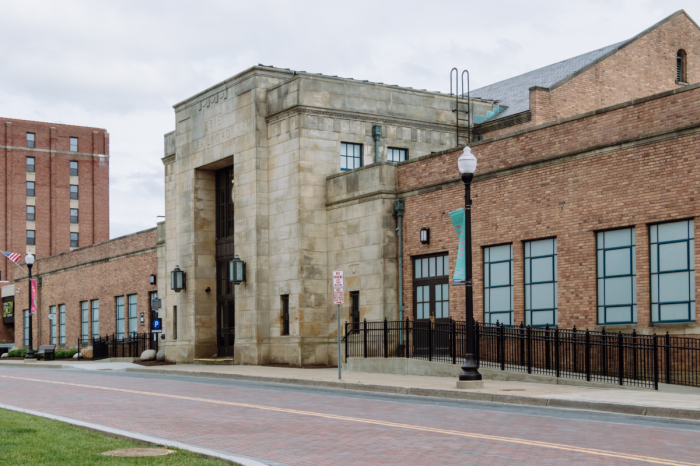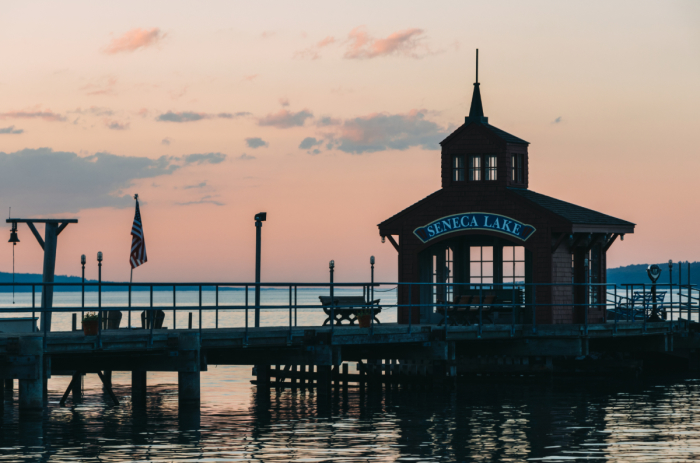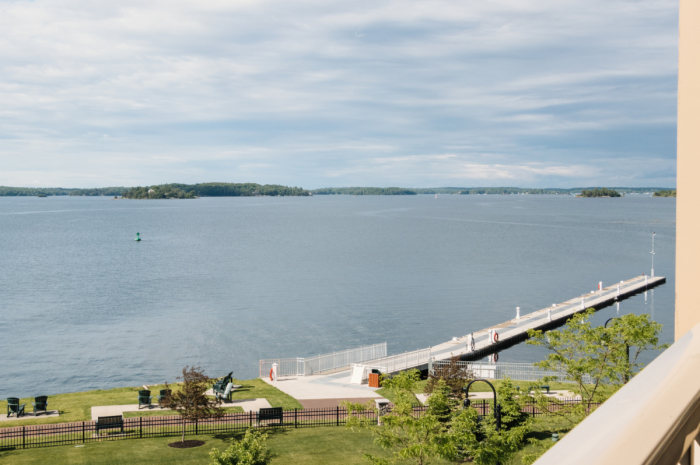Where to go, right now: Driving across the Empire State

A friend noticed I had been away and asked where I went.
When I told him New York he asked about the city, thinking that I had been to New York City. He then acted surprised when I replied that I had to been New York without going to New York. As with so many others, he associates the state with the city of the same name. In many ways that is understandable given both the city’s massive size and its tremendous influence on the country, particularly culture. Just look at all the N.Y.C.-based TV shows and movies.
Of course, New York is way more than New York City. I discovered this during a summer road trip across the Empire State. Along the way I experienced three distinct regions: Western New York, the Finger Lakes and the Thousand Islands.
It’s a trip I have wanted to do for a long time. New York State is always beautiful, but it’s even more pleasant in the summer when local food is abundant, thanks to the diversity of the state’s agriculture. Plus, there is something about a summer road trip that seems distinctively American even in an age of cheap airfares and all-inclusive resorts.
Planning the logistics of where to go and stay were made easy because of the Harbor Hotel Collection. Of the relatively unknown upscale brand’s five hotels, three are located exactly where I wanted to go.
I started my Empire State road trip by flying into Buffalo, the state’s second-biggest city. From there I picked up a rental car and did the 90-minute drive to the Chautauqua Harbor Hotel, which, as its name suggests, is located on the 17-mile-long Chautauqua Lake. By the way, I played with the options on my phone to avoid both toll roads and interstate highways. Selecting this took me on the road less traveled throughout my trip — allowing me to discover many of New York’s otherwise forgotten small towns and villages.
Chautauqua Lake is located on the outskirts of Jamestown, a classic Rust Belt city. It became a popular tourist destination in the late 1800s and remains known for a seasonal resort rooted in the then-popular Methodist camp meetings.
While most people come for the lake I came to discover the National Comedy Center, a destination in and of itself. As with the hotel, it opened last year and is partially housed in a landmark Art Deco train station.
You expect a shrine to all things comedy in Los Angeles, Chicago or New York City. Yet, Jamestown, once a stop on the vaudeville circuit, was where actress and comedian Lucile Ball called home. And yes, “I Love Lucy” is big business here as evident by the Lucille Ball Desi Arnaz Museum and the annual Lucille Ball Comedy Festival.
Officially given the “national” designation by Congress, the National Comedy Center was a long time overdue. Beyond contributing to a wider appreciation of the comedic arts — it’s impossible to imagine how different society since the days Homer would be without comedy — the $50 million museum is also part of a revitalization aimed at putting Jamestown and this part of southwestern New York back on the map after decades of decline.
I was thoroughly impressed at the expertly curated collection, which takes advantage of the latest technology to offer fully interactive exhibits. It was devoid of the kitsch you might expect. Instead, unique artifacts from some of the greatest comedic names were on display. Among my favorites was the crib sheet used by Joan Rivers on how to handle hecklers.
From Chautauqua Lake, I drove to Watkins Glen.
If you follow car racing you probably know of Watkins Glen for its deep connections to motor sports. What you may not know is the small village is situated on southern Seneca Lake.

At 38 miles long and up to 618 feet deep, Seneca Lake is the largest and deepest of the 11 glacier lakes that form the Finger Lakes. The stunning landscape is part of a microclimate that has made it one of the country’s top wine-growing regions.
I stayed at the Watkins Glen Harbor Hotel. It makes the perfect base for exploring the 200 or so wineries that form the Finger Lakes Wine Country.
If wine isn’t your thing a visit to the aptly named Watkins Glen State Park is a must. The showpieces are the 19 waterfalls and 200-foot cliffs along the winding 2-mile-long gorge. You could easily spend hours marveling at the magnificent beauty of God’s creation. Take advantage of the long summer days and visit early or late, as crowds can be heavy from mid-morning until late afternoon.
Continuing onward my third and final stop was Clayton and the 1000 Islands Harbor Hotel.
But first I had to get there. As with before I avoided the interstate whenever possible. That’s how I ended up in Port Byron, an important 19th century village on the Erie Canal. Brigham Young, the early Mormon religious leader, was from here as was one of the Wells Fargo and American Express founders.

Of the three hotels I stayed at this was my favorite, not least because of its million-dollar views of the St. Lawrence River and the Thousand Islands. If you were curious there are actually 1,864 islands in the archipelago that straddles the border of Canada and the United States.
A century ago the Thousand Islands were the playground of the rich, who built more than just cottages. The opulent, almost fairytale-esque Boldt and Singer castles are good examples from the Gilded Age. More simple cottages can be found in the Thousand Island Park Historic District on Wellesley Island, which is connected to the mainland by a bridge. Just be sure to get off before crossing into Canada.
Clayton is a somewhat sleepy small town with nice shops and good eateries. Be sure to visit the Antique Boat Museum, which has an impressive collection that includes everything from Indian-style canoes and 19th century skiffs to Chris-Craft cruisers. They even offer a 45-minute speedboat tour of the St. Lawrence River.
I would avoid nearby Alexandria Bay, which is plagued by the worst kind of stereotypical tourist trap shops. Think sweatshirts, T-shirts and other overpriced junk. The only reason to visit is to catch one of the boat tours offered by Uncle Sam Boat Tours.
If you go
I flew into Buffalo and out of Syracuse on what airlines and travel agents call an open-jaw ticket, which priced the same as backtracking from Clayton and the Thousand Islands to Buffalo. Delta, American and United fly into both airports.
If I had to pick only one of three destinations I visited it would probably be Chautauqua Lake and the National Comedy Center, if only because the museum is worth the trip alone.
Somewhat oddly, one of the best places I found for New York food is the North Country Welcome Center, near Alexandria Bay and the bridge that connects with Canada via Wellesley Island. It is far more than just a highway rest area. Inside is a great little boutique selling the best of New York’s food. There is even a lovely café with food and beverages sourced from local and regional purveyors.
Spires and Crosses, a weekly travel column exclusive to The Christian Post, covers old churches, history and heritage, architecture, culture and art. Follow @dennislennox on Twitter and Instagram.




























